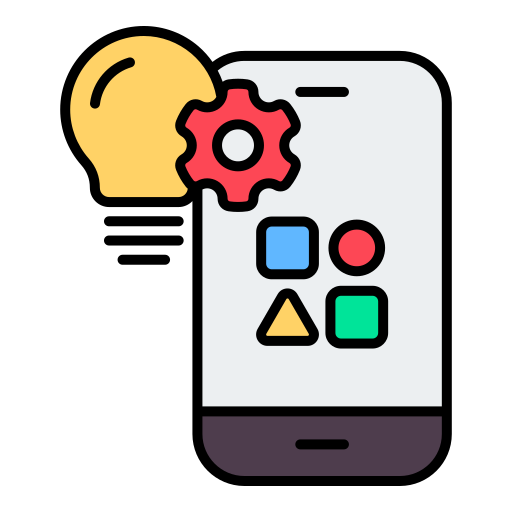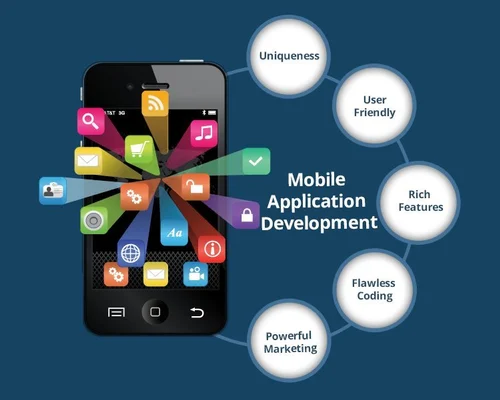Mobile App Development: A Comprehensive Guide
Mobile app development has revolutionized the way individuals interact with technology, transforming smartphones and tablets into essential tools for communication, productivity, and entertainment. With billions of mobile devices worldwide and app usage growing exponentially, the demand for innovative and functional mobile applications continues to surge.
Key Platforms for Mobile App Development
Android
Developed by Google, Android holds the majority share of the mobile market. Apps for Android are built using languages like Java and Kotlin and are distributed via the Google Play Store.
iOS
Apple's iOS is known for its secure and high-quality ecosystem. iOS apps are primarily developed using Swift or Objective-C and are distributed through the Apple App Store.
Introduction to Mobile App Development
Mobile app development refers to the process of creating software applications specifically designed to run on mobile devices. These applications can range from simple tools like calculators to complex systems like e-commerce platforms and gaming apps. The primary operating systems for which developers create apps are Android and iOS, with each platform requiring its own set of tools, frameworks, and programming languages.
Tools and Technologies for Mobile App Development
Programming Languages
Java: Widely used for Android development, Java offers robust features and extensive libraries.
Kotlin: An official language for Android, Kotlin simplifies code and enhances productivity.
Swift: The preferred language for iOS development, Swift is fast, safe, and interactive.
React Native: A JavaScript framework for building cross-platform apps with a single codebase.
Flutter: Developed by Google, Flutter enables developers to create natively compiled apps using a single codebase.


Development Tools
Android Studio: The official IDE for Android development, offering a suite of tools for coding, debugging, and testing.
Xcode: Apple’s IDE for iOS development, equipped with tools for designing and testing apps.
Firebase: A platform by Google that provides backend services like authentication, database management, and analytics.
Appcelerator: A tool for creating native apps using JavaScript.
Unity: Popular for developing gaming apps with 2D and 3D graphics.
Importance of Mobile Applications
Mobile applications have become an integral part of modern life. Businesses leverage apps to enhance customer engagement, streamline operations, and increase revenue. For individuals, apps provide convenience, entertainment, and tools for personal growth and productivity. The diversity in application types ensures that every sector, from healthcare to education, benefits from mobile app development.
The Mobile App Development Process
1. Idea and Conceptualization
The first step in mobile app development is defining the purpose of the app, its target audience, and key features. Conducting market research ensures the app meets user needs and stands out from competitors.
2. Wireframing and Prototyping
Wireframes provide a visual blueprint of the app’s layout and user interface. Prototypes, on the other hand, are interactive models that simulate the app’s functionality, helping stakeholders understand the user experience.
3. Design
App design focuses on creating an intuitive user interface (UI) and user experience (UX). A well-designed app ensures ease of use and aesthetic appeal, making it more engaging for users.
4. Testing
Testing ensures the app is free of bugs and performs well across different devices and operating systems. Developers use manual and automated testing methods to verify functionality, performance, and security.
5. Deployment
Once testing is complete, the app is submitted to app stores for review and approval. After approval, it becomes available for download by users.
6. Maintenance and Updates
Post-launch, developers monitor the app’s performance, fix issues, and release updates to introduce new features and improve user experience.
Challenges in Mobile App Development
Device Fragmentation: With numerous devices running different operating system versions, ensuring compatibility can be challenging.
Performance Optimization: Balancing app speed and functionality requires careful optimization.
Security Concerns: Protecting user data from breaches and vulnerabilities is crucial.
App Store Approval: Meeting the guidelines of app stores can be a time-consuming process.
User Retention: Ensuring users remain engaged with the app demands continuous innovation and updates.

Types of Mobile Applications

Native Apps

Web Apps

Hybrid Apps
Emerging Trends in Mobile App Development

Artificial Intelligence (AI) and Machine Learning (ML): AI-powered features like chatbots and personalized recommendations enhance user experiences.
Augmented Reality (AR) and Virtual Reality (VR): Apps incorporating AR/VR offer immersive experiences, especially in gaming, education, and retail.
5G Technology: Faster internet speeds enable more sophisticated and responsive apps.
Internet of Things (IoT): Apps connecting with IoT devices offer seamless automation and control.
Blockchain Technology: Blockchain enhances security and transparency in financial and enterprise apps.
Best Practices for Mobile App Development
Understand User Needs: Conduct thorough research to identify user preferences and pain points.
Focus on Performance: Optimize app speed and responsiveness to provide a smooth experience.
Prioritize Security: Implement measures like data encryption and secure authentication.
Test Extensively: Regularly test the app to identify and fix issues before deployment.
Collect Feedback: Use user feedback to improve and adapt the app to changing needs.

Mobile app development is a dynamic and ever-evolving field that plays a pivotal role in the digital landscape. Whether for businesses seeking to connect with customers or individuals looking for convenience, mobile apps have become indispensable. By understanding the development process, embracing emerging trends, and adhering to best practices, developers can create impactful applications that cater to diverse needs and drive innovation.
The Future of Mobile App Development
As technology evolves, mobile app development is poised to integrate more advanced features and capabilities. Innovations in AI, AR/VR, and connectivity will redefine user experiences, while the push for sustainability may lead to energy-efficient app designs. Additionally, the rise of no-code and low-code platforms will democratize app development, enabling individuals without technical expertise to create functional apps.



